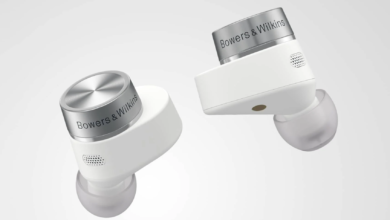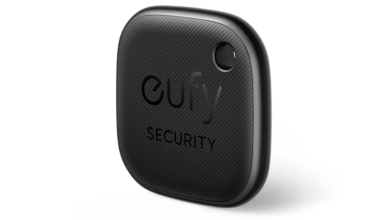How Blockchain Is Disrupting the Healthcare Industry
Healthcare Industry enhances security, transparency and efficiency revolutionizing medical records, supply chains, and patient data management.

Healthcare Industry Blockchain technology is rapidly transforming the Healthcare Industry by introducing unparalleled security, transparency, and efficiency in data management and medical processes. As healthcare systems worldwide grapple with challenges like data breaches, inefficiencies, and lack of interoperability, blockchain emerges as a revolutionary solution. By leveraging decentralized ledgers, cryptographic security, and smart contracts, blockchain ensures tamper-proof medical records, streamlined clinical trials, and fraud-resistant supply chains. This article explores the profound impact of blockchain on Healthcare Industry.
The healthcare industry is at a critical juncture, facing mounting pressures from cybersecurity threats, administrative inefficiencies, and rising costs. Blockchain technology presents a groundbreaking approach to addressing these challenges by enabling secure, decentralized, and transparent data management. Unlike traditional systems where patient records are fragmented across multiple providers, blockchain consolidates data in an immutable ledger, accessible only to authorized entities.
How Blockchain Is Disrupting the Healthcare Industry
Interoperable Health Records
One of the most pressing issues in healthcare is the lack of a unified system for patient data. Medical records are often scattered across hospitals, clinics, and pharmacies, leading to inefficiencies and errors. Blockchain technology solves this problem by creating a decentralized and encrypted database where patient information is stored securely. Patients can grant or revoke access to their records in real-time, ensuring privacy while enabling seamless sharing among Healthcare Industry providers.
Secure
Each transaction or update to a patient’s record is time-stamped and linked to previous entries, making it virtually impossible to alter or delete data without detection. This article delves into the multifaceted ways blockchain is reshaping healthcare, from electronic health records to drug traceability and beyond. This interoperability reduces redundant tests, minimizes medical errors, and enhances the overall quality of care.
Enhancing Clinical Trials with Transparency and Trust
Clinical trials are essential for medical advancements, yet they often suffer from data manipulation, lack of transparency, and inefficiencies in participant recruitment. Blockchain introduces a verifiable and auditable framework for recording trial data, ensuring that results are accurate and reproducible. Smart contracts self-executing agreements with predefined rules can automate processes such as patient consent, payments, and regulatory compliance.
Automation Reduces
Furthermore, blockchain’s immutable ledger provides regulators and researchers with a trustworthy record of every trial phase, fostering greater confidence in medical research outcomes. This automation reduces administrative burdens and accelerates trial timelines. Additionally, blockchain can optimize inventory management, reducing shortages and wastage while lowering costs for healthcare providers and patients.
Combating Counterfeit Drugs with Traceable Supply Chains
The global pharmaceutical industry loses billions annually to counterfeit drugs, which pose severe risks to patient safety. Blockchain enables end-to-end traceability by recording every transaction in the drug supply chain, from manufacturing to delivery. Each batch of medication is assigned a unique digital identifier stored on the blockchain, allowing stakeholders to verify its authenticity at any point.
Counterfeit Products
Counterfeit products are fake goods designed to imitate genuine items, often of inferior quality. They violate intellectual property rights and can harm brands, economies, and consumer trust. Commonly counterfeited items include electronics, luxury goods, pharmaceuticals, and apparel. Purchasing such products supports illegal activities and may pose health and safety risks.
Reducing Healthcare Industry Fraud Through Immutable Records
Healthcare Industry fraud, including false insurance claims and overbilling, drains billions from the system each year. Blockchain’s tamper-proof ledger makes fraudulent activities significantly harder to execute. Smart contracts can automatically verify insurance claims against predefined criteria, reducing the need for manual reviews and minimizing errors.
Remote Patient Monitoring
Remote monitoring devices, such as wearable health tech, can transmit real-time data to Healthcare Industry providers via blockchain, enabling timely interventions for chronic conditions. This innovation is particularly valuable for elderly care and rural healthcare, where continuous monitoring can significantly improve patient outcomes.
Empowering Telemedicine
The rise of telemedicine demands secure and efficient methods for sharing sensitive health data. Blockchain facilitates encrypted communication between patients and doctors, ensuring confidentiality and compliance with privacy regulations. In emergency situations, quick access to accurate health data can be life-saving, making blockchain-based identities a critical advancement in patient-centered care.
Interventions For Chronic Conditions
Interventions for Chronic Conditions focus on long-term management to improve quality of life and slow disease progression. These include lifestyle modifications like diet, exercise, and stress management, combined with medication adherence. Digital health tools, such as remote monitoring and telehealth, enhance patient engagement and personalized care.
Decentralized Patient Identities
Blockchain enables patients to take control of their health data through decentralized digital identities. Instead of relying on multiple providers to store fragmented records, individuals can maintain a single, portable health profile on the blockchain. This empowers patients to share their medical history with any authorized provider seamlessly while retaining ownership of their information.
Data Ownership
Data Ownership refers to the legal rights and control individuals or organizations have over their data. It ensures that users can decide how their information is collected, stored, and shared. In healthcare, blockchain empowers patients by giving them secure, transparent control over their medical records. Clear data ownership builds trust, enhances privacy, and reduces misuse in digital ecosystems.
Challenges
Despite its immense potential, blockchain adoption in healthcare faces several hurdles. Regulatory uncertainty, high implementation costs, and resistance to change are significant barriers. Governments and industry leaders must collaborate to establish standardized frameworks that ensure compliance and interoperability. Additionally, advancements in blockchain scalability and energy efficiency will be crucial for widespread adoption.
The Path Forward
Looking ahead, the integration of blockchain with emerging technologies like artificial intelligence (AI) and the Internet of Medical Things (IoMT) will further revolutionize Healthcare Industry. AI can analyze blockchain-stored data to predict disease outbreaks and personalize treatments. The future of Healthcare Industry lies in a decentralized, patient-driven model where blockchain ensures transparency, security, and efficiency at every level.
Read More: The Sleep-Mental Health Equation: Insights into a Restorative Relationship
Conclusion
Blockchain technology is set to redefine the healthcare industry by addressing long-standing challenges in data security, interoperability, and fraud prevention. Its applications from secure patient records and transparent supply chains to efficient clinical trials and telemedicine demonstrate its transformative potential. While obstacles remain, the benefits of blockchain far outweigh the challenges, paving the way for a more resilient .
As adoption grows, stakeholders must prioritize collaboration, regulatory clarity, and technological innovation to fully harness blockchain’s capabilities. The future of Healthcare Industry is decentralized, data-driven, and powered by blockchain, promising a new era of trust, efficiency, and improved patient outcomes. By reducing fraud and inefficiencies, blockchain improves trust and cost-effectiveness in healthcare delivery.
FAQs
How does blockchain enhance patient data security?
Blockchain encrypts and decentralizes patient records, preventing unauthorized access and ensuring data integrity through immutable ledgers.
Can blockchain eliminate counterfeit medications?
Yes, blockchain provides end-to-end traceability in drug supply chains, making it easier to verify authenticity and detect fraud. It makes counterfeiting far more difficult by ensuring transparency and authentication at every step.
What benefits does blockchain offer for clinical trials?
It ensures data transparency, automates compliance, and reduces administrative delays, making trials more efficient and trustworthy.
Is blockchain adoption costly for healthcare providers?
Initial implementation can be expensive, but long-term savings from reduced fraud and improved efficiency justify the investment.
Will blockchain replace existing healthcare systems?
No, it will integrate with current systems to enhance security, interoperability, and patient control over data. It will integrate with current infrastructure to address data breaches, fraud, and interoperability challenges.











